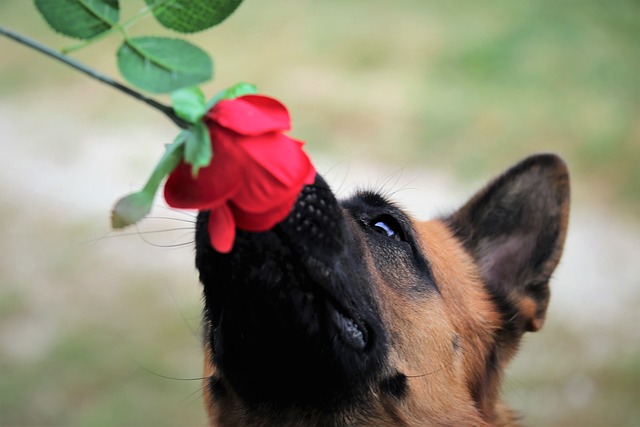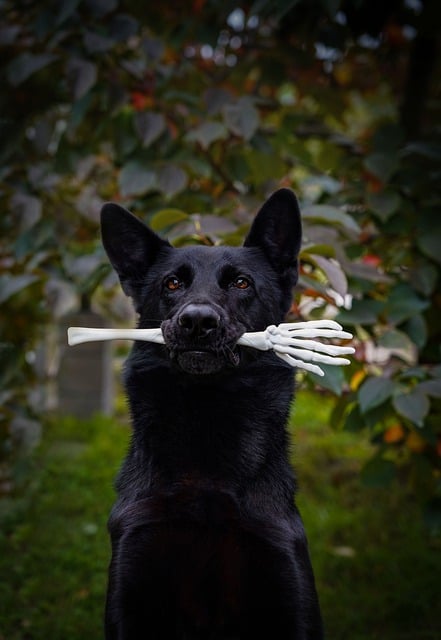German Shepherds are beloved companions known for their loyalty, intelligence, and active nature. As pet owners, it’s essential to understand the dietary needs and potential risks associated with different foods, including mushrooms. This comprehensive guide will delve into the intricacies of whether German Shepherds can safely consume mushrooms, providing you with the necessary information to make informed decisions about your furry friend’s diet.
Understanding Mushroom Toxicity in Dogs
Mushrooms are a diverse group of fungi, and not all of them are safe for dogs to consume. While the majority of mushrooms are not harmful, a small percentage can be highly toxic and potentially life-threatening to canines. The toxicity of mushrooms can vary depending on the species, the amount ingested, and the individual dog’s sensitivity.
Toxic Mushroom Varieties
Some of the most common toxic mushroom varieties that can pose a threat to German Shepherds include:
- Amanita mushrooms: These include the death cap (Amanita phalloides) and the destroying angel (Amanita virosa), which can cause severe gastrointestinal issues, liver damage, and even death.
- Inocybe mushrooms: Also known as the “little brown mushrooms,” these can cause neurological symptoms such as tremors, seizures, and coma.
- Galerina mushrooms: These small, brown mushrooms are often mistaken for edible varieties and can be fatal if consumed.
Symptoms of Mushroom Poisoning
If a German Shepherd ingests a toxic mushroom, they may exhibit a range of symptoms, including:
- Vomiting
- Diarrhea
- Abdominal pain
- Lethargy
- Tremors
- Seizures
- Coma
It’s crucial to seek immediate veterinary attention if you suspect your German Shepherd has consumed a toxic mushroom, as delaying treatment can lead to severe health complications or even death.
Feeding Mushrooms to German Shepherds
While some mushrooms may not be inherently toxic to dogs, it’s generally recommended to avoid feeding them to German Shepherds altogether. Here’s why:
Store-Bought vs. Wild Mushrooms
Store-bought mushrooms are generally safer for dogs than wild-grown mushrooms, as they are less likely to be contaminated with toxic species. However, even store-bought mushrooms can pose risks if they are prepared with harmful ingredients, such as garlic, onions, or certain oils and seasonings.
Potential Risks of Feeding Mushrooms
Even if a mushroom is not toxic, it may still pose other risks to your German Shepherd’s health. Mushrooms can be difficult for dogs to digest, leading to gastrointestinal issues like vomiting, diarrhea, and abdominal discomfort. Additionally, the texture and size of mushrooms can present a choking hazard, especially for larger breeds like German Shepherds.
Safer Alternatives to Feeding Mushrooms
Instead of feeding mushrooms to your German Shepherd, it’s recommended to focus on a balanced, nutritious diet that meets their specific dietary needs. This can include high-quality commercial dog food, as well as carefully selected whole-food ingredients that are known to be safe for canine consumption.
Recommended Dietary Guidelines
- Feed your German Shepherd a diet that is formulated for their age, size, and activity level, ensuring they receive the necessary nutrients.
- Avoid feeding table scraps, as many human foods can be harmful to dogs.
- Consult with your veterinarian to create a personalized diet plan that caters to your German Shepherd’s individual needs.
Preventing Mushroom Exposure
To protect your German Shepherd from the risks of mushroom poisoning, it’s essential to take proactive measures to limit their exposure to these fungi.
Yard and Outdoor Inspections
Regularly inspect your yard and any areas where your German Shepherd may roam, removing any mushrooms that you find. Be vigilant during walks, as well, and keep your dog away from areas where mushrooms are growing.
Educating Family and Caretakers
Ensure that all family members and caretakers are aware of the potential dangers of mushrooms and the importance of keeping them away from your German Shepherd. Encourage everyone to be mindful of any mushrooms that may be present in the environment.
Conclusion
In summary, while German Shepherds can technically consume certain types of mushrooms, it is generally not recommended to feed them to your furry companion. The risks of mushroom poisoning, digestive issues, and choking hazards outweigh any potential benefits. By focusing on a balanced, nutritious diet and taking proactive measures to prevent mushroom exposure, you can ensure the health and well-being of your beloved German Shepherd.






